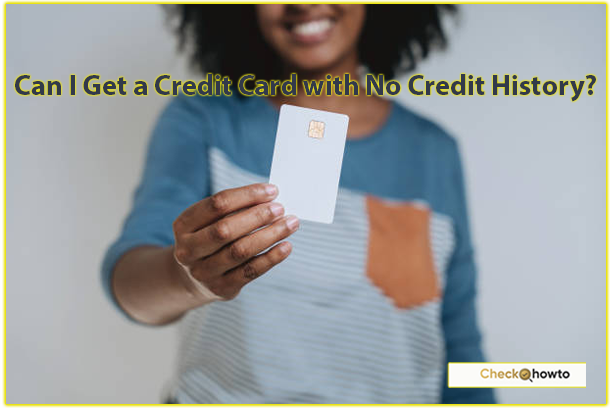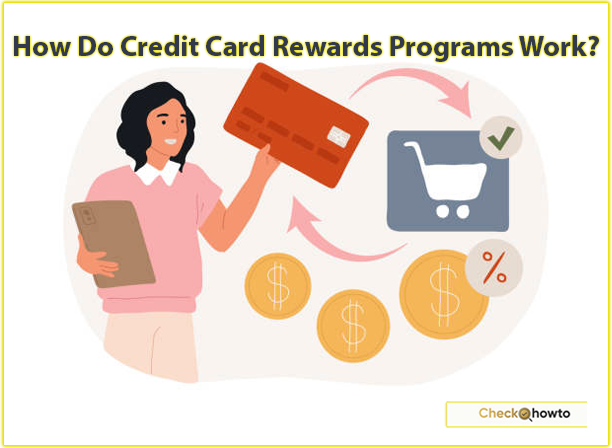If you’re wondering, “Can I get a credit card with no credit history?” you’re not alone. Starting from scratch in the world of credit can feel daunting, but I’m here to guide you through the process. As someone who’s navigated financial systems and helped others understand their options, I’ll break down how you can secure a credit card even if you have no credit history.

Credit History and Why It Matters
What credit history is? Your credit history is a record of how you’ve managed borrowed money, like loans or credit cards. It’s tracked by credit bureaus Equifax, Experian, and TransUnion and summarized in your credit report. Lenders use this to assess your creditworthiness, often through a credit score like FICO.
If you’re like me when I first started, you might have no credit history because you’ve never borrowed money or used a credit card. This doesn’t mean you’re irresponsible—it just means you’re a blank slate to lenders. The challenge is that many credit card issuers see a lack of credit history as a risk, making it harder for you to qualify for traditional cards.
Can You Get a Credit Card with No Credit?
The good news? Yes, you can get a credit card with no credit history. While it might not be as straightforward as applying for a premium rewards card, there are several options designed for people in your situation. These cards cater to beginners, students, or those rebuilding their financial profile. Below, I’ll walk you through the most accessible paths to securing your first credit card.
1. Secured Credit Cards: A Beginner-Friendly Option
A secured credit card is one of the easiest ways for someone with no credit history to start building credit. Here’s how it works: you provide a cash deposit, which typically becomes your credit limit. For example, if you deposit $200, your credit limit is $200. This deposit reduces the issuer’s risk, making it easier for you to qualify.
I remember when a friend of mine, Sarah, applied for her first secured card. She was nervous about the deposit but found it was refundable once she built enough credit to upgrade to an unsecured card. Secured cards report your payment history to the credit bureaus, so if you pay your bill on time, you’re laying the foundation for a strong credit score.
Popular Secured Cards:
- Discover it® Secured Credit Card
- Capital One Platinum Secured Credit Card
Tips for Using a Secured Card:
- Pay your balance in full each month to avoid interest.
- Keep your credit utilization (the percentage of your limit you use) below 30%.
- Check if the issuer reports to all three credit bureaus.
2. Student Credit Cards: Perfect for Young Adults
If you’re a student, you’re in luck. Many issuers offer student credit cards tailored for those with limited or no credit history. These cards often have lower credit limits and fewer fees, making them ideal for beginners. When I was in college, I applied for a student card and found it was a great way to learn responsible credit use while earning small rewards.
Examples of Student Cards:
- Discover it® Student Cash Back
- Journey Student Rewards from Capital One
Eligibility Tips:
- You typically need to be enrolled in a college or university.
- Provide proof of income, like a part-time job, to strengthen your application.
- Some cards don’t require a Social Security number, which is helpful for international students.
3. Become an Authorized User
Another way to build credit without applying for your own card is to become an authorized user on someone else’s credit card. For instance, if your parent or spouse has a card with a good payment history, they can add you to their account. You’ll get a card in your name, and the account’s positive history may appear on your credit report.
My cousin, Jake, used this method when he was starting out. His mom added him to her card, and within months, he saw his credit score begin to form. However, this option depends on the primary cardholder’s responsible habits. If they miss payments, it could hurt your credit.
Key Considerations:
- Confirm with the issuer that authorized user activity is reported to credit bureaus.
- Choose someone you trust with a strong credit history.
- Discuss spending limits to avoid misunderstandings.
4. Credit-Builder Loans
While not a credit card, a credit-builder loan is another tool to establish credit, which can help you qualify for a card later. With these loans, you make small monthly payments, and the lender reports them to the credit bureaus. Once the loan is paid off, you receive the money you’ve paid (minus fees).
I’ve seen credit-builder loans work wonders for people who want to build credit without taking on debt. Companies like Self or local credit unions often offer these loans with affordable terms.
5. Store Credit Cards: A Risky but Viable Option
Retail or store credit cards are often easier to qualify for than traditional cards. These cards are typically limited to specific stores, like Target or Kohl’s, and may come with high interest rates. If you’re disciplined, they can help you build credit.
When I considered a store card, I was tempted by the discounts but cautious about the terms. My advice? Only use these cards if you can pay the balance in full each month to avoid costly interest charges.
Steps to Apply for Your First Credit Card
Now that you know your options, let’s talk about how to apply for a credit card with no credit history. Follow these steps to increase your chances of approval:
- Check Your Credit Report: Even with no credit history, pull your free credit report from AnnualCreditReport.com to ensure there are no errors or surprises.
- Research Cards: Compare secured, student, or starter cards based on fees, interest rates, and credit-building features.
- Gather Documentation: You’ll need proof of identity (e.g., driver’s license) and income (e.g., pay stubs or bank statements). If you’re a student, have your enrollment details ready.
- Apply Online or In-Person: Most issuers allow online applications, but visiting a local bank or credit union can offer personalized guidance.
- Start Small: Use your card for small, manageable purchases and pay the bill on time to build a positive payment history.
Tips for Building Credit with Your New Card
Once you have your card, it’s crucial to use it responsibly. Here’s how you can set yourself up for success:
- Pay On Time: Your payment history is the biggest factor in your credit score. Set up autopay or calendar reminders to avoid late payments.
- Keep Balances Low: Aim to use less than 30% of your credit limit. For example, if your limit is $500, try not to carry a balance above $150.
- Monitor Your Credit: Use free tools like Credit Karma or your card issuer’s app to track your progress.
- Avoid Unnecessary Applications: Applying for multiple cards at once can lead to hard inquiries, which may lower your score.
Common Mistakes to Avoid
When I started building credit, I made a few missteps, like carrying a balance and paying interest unnecessarily. Here are pitfalls to watch out for:
- Maxing Out Your Card: High balances hurt your credit utilization ratio.
- Missing Payments: Even one late payment can damage your score.
- Ignoring Fees: Some cards have annual or maintenance fees, so read the fine print.
- Closing Your Card Too Soon: Keeping your first card open can help your credit history lengthen over time.
Why Building Credit Matters
Building credit isn’t just about getting a card—it’s about setting yourself up for financial opportunities. A good credit score can help you qualify for loans, rent an apartment, or even land a job. When I rented my first apartment, my credit score made the process smoother, and I want the same for you.
By starting with a secured card, student card, or another beginner-friendly option, you’re taking control of your financial future. Over time, your responsible habits will open doors to better cards with rewards, lower rates, and higher limits.
Final Thoughts
If you’re asking, “Can I get a credit card with no credit history?” the answer is a resounding yes. Whether you opt for a secured card, become an authorized user, or explore student cards, there are plenty of ways to start your credit journey.
My experience taught me that patience and discipline are key. By making smart choices, you’ll not only get your first card but also build a strong credit foundation for years to come.
Take the first step today research your options, apply for a card that fits your needs, and start building your credit with confidence. If you have questions or need help choosing a card, feel free to reach out to a financial advisor or your bank for personalized advice.



